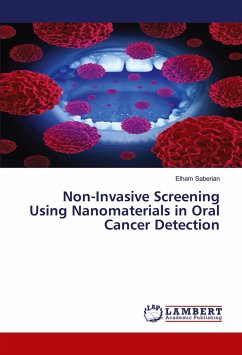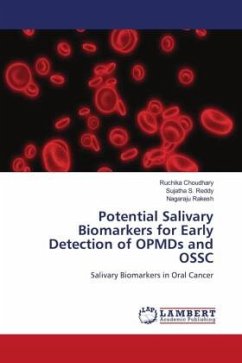
SEROLOGICAL ASPECTS OF ORAL LESIONS
Versandkostenfrei!
Versandfertig in 6-10 Tagen
40,99 €
inkl. MwSt.

PAYBACK Punkte
20 °P sammeln!
Serological diagnosis is usually based on either the demonstration of the presence of specific antibodies against specific antigens or biomarkers which act as surrogate to the processes occurring during the progress of the disease. They are widely used for screening of blood products for the risk of certain chronic infections, evaluation of the immune status, and need for prophylactic treatments. They are also widely used for epidemiological studies, determination of vaccine-induced immunity, and other similar public health purposes. Serologic examination is necessary to establish the definiti...
Serological diagnosis is usually based on either the demonstration of the presence of specific antibodies against specific antigens or biomarkers which act as surrogate to the processes occurring during the progress of the disease. They are widely used for screening of blood products for the risk of certain chronic infections, evaluation of the immune status, and need for prophylactic treatments. They are also widely used for epidemiological studies, determination of vaccine-induced immunity, and other similar public health purposes. Serologic examination is necessary to establish the definitive diagnosis when subjective and objective examination show similarities. In addition, appropriate interpretation of laboratory results may also be an important consideration before prescription of any therapy, especially in patient with high risk of recurrence to reduce the transmission risk. Various Omics technologies such as proteomics, metabolomics, salivary panomics, transcriptomics, cancer genomics, etc. have been used to know more about the disease progression, diagnosis and also in therapeutic purposes.












